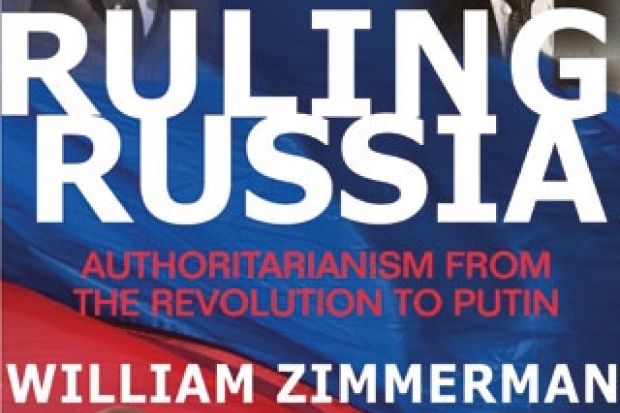The escalation of the Ukraine crisis following Russia’s annexation of Crimea has led Western observers to make fresh comparisons of the Putin regime with Soviet authoritarianism. William Zimmerman’s new book is perfectly timed to furnish a backdrop to this discussion, providing the first major overview of Russian leadership politics from 1917 to the present. His unique contribution is his analysis of the waxing and waning of the “selectorate”, the circle of people who have a say in choosing a country’s leader. Zimmerman sets himself the question “Is Russia, has it ever been, and will it ever be, a ‘normal’ country?” This use of value-laden terminology initially arouses scepticism about how useful it is to declare one political system “normal” (Western-style democracy) and then use it as a yardstick by which to measure a different one. To assess the Soviet regime on the basis of how far it fits with “normal Western-type democracy” seems rather like trying to fit a square peg into a round hole.
Nevertheless, Zimmerman’s use of the concept of the selectorate binds the analysis together well. The selectorate was fairly limited after 1917, and contracted further to a single person during Joseph Stalin’s “totalitarian” dictatorship. It expanded somewhat after his death and the inauguration of “welfare authoritarianism” under Khrushchev and Brezhnev. Following the collapse of the Soviet Union in 1991, the Russian Federation evolved from a “competitive” authoritarian regime (at its most “democratic” with a wide selectorate in the mid to late 1990s) to a “full” authoritarian system in the first decade of the 21st century. The decade after 2000 saw state control over the media increase, while competitiveness in Russian elections dissipated. The 2012 election, however, saw the return of electoral uncertainty as the people of Moscow protested the Stalinist “circular flow of power” at play in the “castling” by Putin and Medvedev’s swapping of positions.
Ruling Russia is written in a lively style, with flashes of humour. On Stalin’s mobilisation of the Soviet population through new forms of culture, including dance classes, Zimmerman evokes the wonderful image of Stalin’s protégé Vyacheslav Molotov (whose adopted last name translates as “the Hammer”) and Red Army commander Kliment Voroshilov learning to dance the tango. Any criticisms I might have are the result only of the difference in approach between a historian and a political scientist. First, political scientists have always been more attached to the “totalitarian model” of the Soviet regime, and Zimmerman’s uncritical use of it here stands in contrast to the work of historians who have questioned its usefulness in understanding Soviet society in all its complexity. Second, causation is more the concern of the historian, but it would have been fascinating to hear the opinion of this expert on the underlying (often deterministic) explanations for the longevity of authoritarianism in Russia; does the Russian soul yearn for a firm leader? Is it the sheer size of the Russian territory, its long and open borders ripe for invasion, which requires strong, centralised control?
Zimmerman is more interested in assessing Russia’s future. He predicts that while a return to totalitarianism in the coming decade is unlikely, so too is the prospect of democracy. He foresees a continuation of authoritarianism, and believes Putin’s re-election in 2018 is “most likely”. If we are to learn anything from Russia’s history, however, the obvious lesson is that when change comes it is sudden and unexpected, and results in greater transformation than would have seemed possible by projecting the present forward.
Ruling Russia: Authoritarianism from the Revolution to Putin
By William Zimmerman
Princeton University Press, 344pp, £19.95
ISBN 9780691161488 and 9781400850181 (e-book)
Published 28 May 2014
Register to continue
Why register?
- Registration is free and only takes a moment
- Once registered, you can read 3 articles a month
- Sign up for our newsletter
Subscribe
Or subscribe for unlimited access to:
- Unlimited access to news, views, insights & reviews
- Digital editions
- Digital access to THE’s university and college rankings analysis
Already registered or a current subscriber?





